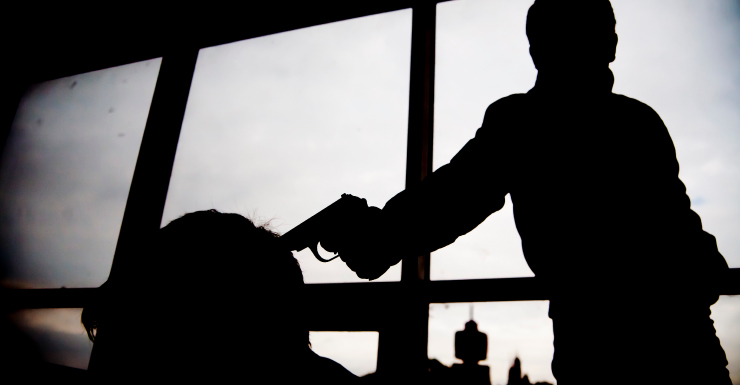18 Fla. L. Weekly Supp. 884a
Online Reference: FLWSUPP 1809DWIL
Insurance — Personal injury protection — Coverage — Medical expenses — Exhaustion of policy limits — Bad faith — Where there was no binding legal authority as to whether inclusion of professional license number on claim form was required at time insurer denied medical provider’s claim on that basis, there was no bad faith that would require insurer to set aside disputed amounts — Insurer is not responsible for disputed amounts after exhaustion of policy limits on other claims
OAKLAND PARK MRI, INC., (A/A/O DANIEL WILSON), Plaintiff, vs. USAA CASUALTY INSURANCE COMPANY, Defendant. County Court, 17th Judicial Circuit in and for Broward County, Civil Division. Case No. 09-10890 COCE 55. May 10, 2011. Honorable Sharon Zeller, Judge. Counsel: Charles Kane, for Plaintiff. Reuven T. Herssein, Law Offices of Herssein & Herssein, P.A., North Miami, for Defendant.
FINAL SUMMARY JUDGMENT IN FAVOR OF USA A CASUALTY INSURANCE COMPANY
THIS CAUSE came before the Court on April 12, 2011, for hearing of the Plaintiff’s and Defendant’s Motions for Final Summary Judgment, and the Court’s having reviewed the Motion, the entire Court file, and the relevant legal authorities; having heard argument of counsel; having made a thorough review of the matters filed on record; and having been sufficiently advised on the premises, the Court finds as follows:
The Issue before this Court is whether an insurer is required to pay a claim, after policy benefits have exhausted, when the insurer denied the claim based upon the status of the law the time the bill was received and processed, when a subsequent binding legal opinion is rendered which invalidates the basis for the denial of said claim.
Findings of Fact: Plaintiff, a provider of MRI services, submitted CMS 1500/HCFA forms to the Defendant for MRIs, billed on April 11, 2009 and May 21, 2009. The CMS 1500/HCFA forms were global bills, including charges for the technical and professional components of the respective MRIs at issue. It is undisputed that Plaintiff did not include a professional license number in Box 31 of the CMS 1500/HCFA forms submitted to Defendant. Defendant denied payment of the Plaintiff’s bill for date of service April 11, 2009, based upon its position in its Explanation of Reimbursement (EOR) which states that the, “CMS 1500 form needs to be submitted with Box 31 completed pursuant to Florida PIP Statute 627.736. Box 31 should contain the name of the provider or supplier who rendered the service and their professional license number.” Although Plaintiff’s CMS 1500/HCFA form for date of service May 21, 2009 failed to contain a professional license number in Box 31, the Defendant mistakenly reimbursed the Plaintiff’s claim for said date of service. Defendant continued to make good faith payments to legitimate claims submitted by the assignor’s other medical providers. Subsequently, on August 3, 2009, USAA paid a bill from another of the claimant’s medical providers, which exhausted all PIP benefits available under the policy of insurance. Thereafter, on August 19, 2009 — sixteen days after PIP benefits had exhausted — Plaintiff filed the instant action; Defendant was served with this suit on August 26, 2009.
In light of the Fourth District Court of Appeals ruling in USAA Casualty Insurance Company v. Pembroke Pines MRI, Inc. (a/a/o Megan Cahill), 31 So.3d 234 (Fla. 4th DCA 2010) [35 Fla. L. Weekly D613b] (holding that a medical provider need only provide substantially accurate responses to the all relevant information and material elements on the CMS 1500/HCFA form), the Plaintiff claims that the Defendant never had “reasonable proof” that it was not responsible for the claim, and therefore, acted in bad faith in the denial of the claim.
Conclusions of Law: Florida law has well established that an insurer is not responsible for payment of any further benefits once PIP benefits have been exhausted under the policy, unless the insurer acts in bad faith in denying the claim or improperly manipulates the claim to avoid paying it. In this case, there is no dispute that the PIP benefits were exhausted by paying other legitimate claims. At the time Plaintiff’s claim for date of service April 11, 2009 was submitted, the Defendant acted in accordance with the law in denying the claim when the CMS 1500/HCFA form failed to contain a professional medical license number in Box 31. Subsequent thereto, but prior to the Plaintiff filing suit, all PIP benefits available under the policy of insurance exhausted.
In Progressive American Insurance Co. v. Stand-up MRI of Orlando, 990 So.2d 3 (Fla. 5th DCA 2008) [33 Fla. L. Weekly D1746a], the Court found ruled that having insurers pay benefits in excess of the policy limits is, “not supported by the statute [§627.736] and violates every principle of law governing insurance contracts. Most recently, in Richard A. Sheldon, D.C., (a/a/o Travis Baliel) v. United Services Automobile Association, 2010 Fla. App. LEXIS 20245; 36 Fla. L. Weekly D23a (Fla. 1st DCA 2010), the First District Court of Appeals stated, “Florida courts have established that, once an insurer has paid out the policy limits to the insured (or to various providers as assignees), it is not liable to pay any further PIP benefits, even those that are in dispute.” Further, if benefits are exhausted before the suit is served on the insurer, the suit for benefits may not go forward, because the insurer has met its obligation under the contract to pay the policy amount. See Progressive American Insurance Co. v. Stand-Up MRI of Orlando, 990 So. 2d 3 (Fla. 5th DCA 2008).”
Pursuant to Progressive American Insurance Co. v. Stand-up MRI of Orlando, 990 So.2d 3 (Fla. 5th DCA 2008) [33 Fla. L. Weekly D1746a], Simon v. Progressive Express Insurance Co., 904 So.2d 449 (Fla. 4th DCA 2005) [30 Fla. L. Weekly D1156b], and Millennium Diagnostic Imaging Center, Inc. a/a/o Alfonso Taboada v. Progressive Express Insurance Company, 14 Fla. L. Weekly Supp. 938a (Fla. 11th Jud. Cir. July 19, 2007), cert. denied, 2008 Fla. App. Lexis 10301 at *1, 33 Fla. L. Weekly D1742a (Fla. 3d DCA July 9, 2008), the Court finds no bad faith on the part of this Defendant which might require the insurance company to set aside disputed amounts. Bad faith does not exist when an insurer takes a legal position, relying upon the status of the law at that time, when there is no binding authority stating otherwise. Please see DPI of North Broward, LLC, (a/a/o John Shutowick) v. USAA, CASE NO. 10-05075 COCE 53, Broward County Court, Judge Robert Lee (February 1, 2011) [18 Fla. L. Weekly Supp. 492a]; see also Pembroke Pines MRI, Inc. (a/a/o Jack Paris) v. USAA Casualty Insurance Company, CASE NO. 09-09458 COCE 51, Broward County Court, Judge Martin Dishowtiz (April 11, 2011) [18 Fla. L. Weekly Supp. 613a]; Pembroke Pines MRI, Inc. (a/a/o Coleen Carcelli) v. United Servicse Automobile Association, 10-08138 COCE 54, Broward County Court, Judge Lisa Trackman (April 8, 2011).
At the time the Defendant denied the Plaintiff’s claim for date of service April 11, 2009, there was no binding legal authority as to whether a professional medical license number was required in Box 31 of the CMS 1500/HCFA form. At that time, Box 31 was a hotly contested issue, with County Court opinions finding in favor of both the Plaintiff’s and the Defendant’s positions. However, the fact that there were non-binding County Court opinions opposite of the Defendant’s legal position on the Box 31 issue does not give rise to an assertion of bad faith in the handling of the claim. At the time Defendant denied Plaintiff’s claim for date of service April 11, 2009, the Defendant’s “reasonable proof” in denying the claim was based upon the fact that the CMS 1500/HCFA form was not properly completed, pursuant to Florida Statute §627.736(5)(d). Furthermore, the Defendant’s “reasonable proof” was supported by County Court opinions throughout the State of Florida. Although it is not the facts in this case, Plaintiff’s argument that Defendant did not have “reasonable proof” to deny the claim and acted in bad faith would hold more ground if the denial based upon Box 31 had occurred after the Cahill ruling was issued. Furthermore, in accordance with the ruling in Progressive American Insurance Co. v. Stand-up MRI of Orlando, 990 So.2d 3 (Fla. 5th DCA 2008) [33 Fla. L. Weekly D1746a], as of August 3, 2009 — the date PIP benefits exhausted and two weeks prior to Plaintiff filing suit — Defendant’s “reasonable proof” in denying the claim was based upon the fact that PIP benefits had exhausted.
As noted in Stand-up MRI, supra, “ . . .The Defendant did nothing wrong here. They were under a contract to the insured for a limited amount of benefits. They paid that amount in toto. They are not responsible for the insured’s over-use of the policy. The Defendant did not gain anything out of their actions. They fully performed their contract with the insured. It is to the insured that the assignees should look for any additional payments.”
Accordingly, Final Judgment in this case is hereby entered in favor of the Defendant, USAA CASUALTY INSURANCE COMPANY.
The Plaintiff shall take nothing in this action, and the Defendant shall go hence forth without day.
The Court reserves jurisdiction to determine and award reasonable attorney’s fees and costs.



